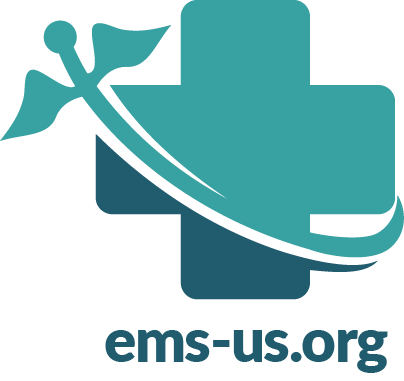The Importance of Going to a Family Clinic
Whether it’s nagging back pain, sudden flu symptoms, or an out-of-the-blue rash, your first point of contact when you have a sudden medical need is most likely your local family clinic.
A family clinic is the standard go-to for most people with minor healthcare issues.
Naturally, this doesn’t include emergencies. Emergencies are an exception because they are legitimate reasons to go to the emergency room instead of a family clinic.
If you don’t have an emergency scenario, going to a family clinic is more beneficial for you and your family. In today’s post, we’ll take you through the different benefits of going to a family care clinic.
Family Clinic Doctors Track Your Health Cycle
Family clinic doctors can see patients of all ages – whether it’s babies, children, teens, middle-aged adults, and seniors.
These doctors frequently see the same patients for several years and throughout their life. This scenario is usual with family clinics.
Family doctors treat a wide range of health conditions. Thus, these healthcare professionals are suited to be your primary care physicians at any point in your life.
This setup allows you to have a lasting connection with your family doctor. You can trust that they are someone who knows your and your family’s health cycle; should any issues arise, you can lean on their expertise and experience treating you.
Family Doctors Know Your Complete Medical History
When you go to the same doctor for most of your life, he or she can identify and distinguish your medical history, allowing them to make a more specific diagnosis.

Your family doctor can also notice any red flags to watch out for, medication you should or shouldn’t try, and watch out for any changes in your body and overall health throughout the years.
Also, a family doctor usually sees members – from different generations – of the same family.
This lets a doctor study any genealogical-related patterns to be concerned about.
For instance, if your family doctor knew one or both of your parents have a congenital condition, and their parents also did, that’s most likely a red flag for you.
Your family doctor can recommend you take the right steps – whether it’s getting genetic counseling or acquiring a health screening – not only for you but for your other family members who are also at risk.
Knowing your complete family medical history is part of a bigger picture. Occasionally, it also helps when a healthcare professional treating your children or other younger family members know certain situations so that the doctor can look out for anxiety or stress triggers.
Going Beyond Medical Care and Treatment
Yes, you to your family clinic for your annual physicals. However, your family doctor can also advise you on how to manage chronic conditions.
These health conditions include diabetes, heart disease, arthritis, or other severe health issues. Family doctors can also treat injuries and sinus infections. These are merely a few examples; they can treat so many more conditions, some of which you may not even be aware that you have.

If the family clinic is larger and more equipped, family doctors can also perform minor surgical operations.
If not, they can refer you to the nearest medical facility that can facilitate the procedure.
Helping You Find the Right Specialist
If your condition requires you to see a medical specialist – whether it’s for cancer, heart disease, or other chronic and severe health issues, your family doctor can refer you to one.
Not only will you get a recommendation, but you can also trust that whoever your family doctor is referring you to is someone they also have confidence in.
What Do Doctors Treat at a Family Clinic?
If you have a nagging neck or back pain, a rash that appeared all of a sudden, or you might think you have COVID-19 or other flu symptoms, then your local family clinic must your first point of health contact.
Obviously, medical emergencies are not counted here. If you do have one, then go to the emergency room immediately – you don’t have to stop at a family clinic.
Still, most people have a misconception of going to the emergency room or urgent care center when they can most likely get the treatment and attention they need at a family clinic.
A family physician (or family doctor) is trained and experienced to provide comprehensive medical care for patients of all ages. These healthcare specializations fall under the term “general medicine.”
These medical services can include health education, family planning, immunizations, diagnosis of diseases, physical checkups for babies, children, and adults, and the treatment of minor injuries and illnesses.
Family doctors can take care of the healthcare requirements of a diverse spectrum of patients – from newborns to seniors. They can treat a wide array of acute illness. They can also effectively handle a lot of chronic health conditions.
Internal Medicine and Family Medicine: Differences and Similarities
Many of us are often confused with the differences (and similarities, if there are any) between these two branches of medicine. This is especially true of the internal medicine doctor is also practicing general internal medicine.
Much of the misperception most likely arose from the patients seen by family physicians at their family clinics. These patients are mostly adults. Thus, the fact overlaps with the patients treated by internal medicine physicians.
Both internal medicine doctors and family doctors are classified as primary care physicians. However, the most fundamental difference would have to be this: internal medicine doctors don’t focus on children patients.
In this section, let’s take a look at the significant differences between these two medical specialties. There are fundamental distinctions between internal medicine and family medicine, from the training and educational requirements to treatment strategies to patient care.
Generally, here’s what you need to remember:
- An internal medicine doctor only treats adult patients.
- A pediatrician specializes in treating and looking after infants, children, teenagers.
- A family medicine doctor can both see adults and children. They specialize both in internal medicine and pediatrics.
What to Expect at Your First Family Clinic Appointment
As we mentioned, family doctors play a significant role in offering initial care and treatment for a broad spectrum of patients.
When you go to your appointment with a family doctor, it’s essential to make the most of it. You can do your part as a patient to make your visit more efficient.
Even though you think you may be ready and even have some questions to ask your family doctor, you may still end up with nothing to ask. If this happens, don’t fret. You’re not alone.
There are some things you can do to help you take full advantage of your one-on-one session you’re your family doctor – whether if it’s in person or a virtual appointment.
Here are some tips to help you prepare for you or your children’s medical appointment at the family clinic.
Always Be on Time for Your Appointment
It’s always good to arrive at least 15 to 20 minutes before your scheduled appointment. If it’s virtual, you should also allot about 15 minutes or so to log on, make sure your microphone and webcam are working right and set everything up.
Following this tip will give you enough time to check-in. The nurse or nursing assistant can also check your vitals, weight, height, blood pressure, and record them, which is a standard operating procedure during any appointment at the clinic.

When you’re on time for your appointment, you wouldn’t have to feel rushed and likely to forget to share any important details about any symptoms you may have and your overall health.
Getting there early will also maximize the time you have scheduled with your family doctor. Consequently, you are also doing your part in allowing your healthcare provider to remain on schedule.
Write Your Questions and Thoughts Down
Before going to your health appointment, it’s always good practice to jot down any questions or other matters you want to talk about with your family doctor.
When you write the things you want to discuss down, it’ll give you plenty of time to prioritize them in the order you wish to discuss first with your doctor.
Additionally, list down all the current medications you’re taking, as well as dietary supplements, vitamins, and even herbal remedies.
Remember Your Family Health History
It may be challenging for you to remember your family health history during the actual appointment. This is especially true if you’re taking your child (or other family members) to the family clinic.
While you’re writing down the questions you want to ask to your family doctor, you should also jot down any changes to your medical history.
Take note of significant events in your health history. Also, make sure you are sharing up-to-date information about your health.
Your family doctor needs to know everything they can learn about your medical history. This knowledge could be an invaluable tool for your doctor in inferring your risk factor for specific medical conditions and diseases.
Relax
It’s normal to be nervous and anxious. However, try to keep in mind that your family doctor is there to work with you and ultimately, help you feel better and get healthier.



